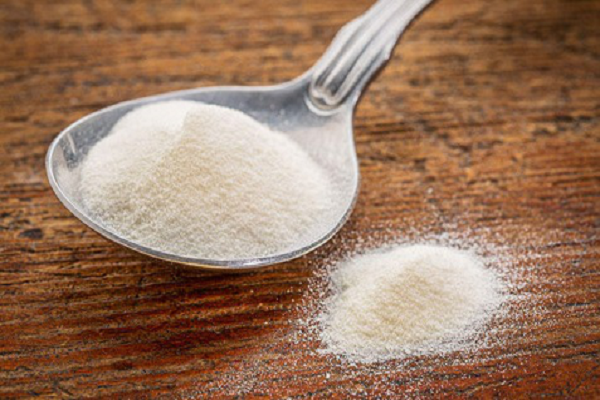Core Tip: As we all know, the vaccine has played a major role in the prevention and control of swine diseases and contributed to it. As a result, some people exaggerated the role of vaccines too much and used vaccination as the only means to prevent and treat swine diseases. They used the vaccine as a panacea, ignoring the epidemic situation of the local epidemic, ignoring the immunization process, disregarding the presence of immune antibodies and pig health. In the situation, vaccinating pigs at the same time or within a short period of time inoculated with multiple vaccines not only caused the pigs to fail in immunization but also produced a “vaccine diseaseâ€. The so-called "vaccine disease" is a series of diseases caused by improper injection of vaccines. The author is engaged in the prevention and control of animal epidemics. He visits the countryside every year to check the situation of spring protection and fall prevention of animals. He often hears pig farmers telling how their own pigs have been used by animal epidemic prevention staffs to get sick and even killed. This situation must be resolved, otherwise it is not conducive to us to carry out animal epidemic prevention work. The author talks about pig vaccinal disease and its prevention and treatment for peer reference. 1. Allergic reactions to the clinical manifestations of vaccinal diseases. Some pigs with poor physique and allergies are allergic to certain vaccines. Allergic reactions occur immediately after inoculation. They manifest as unstable standing, swaying movements, and finally fell to the ground. The limbs are swiped and the mouth vomits. White foam, breathless. If the rescue is not timely, the pig will die. Pig fever, food waste, mental depression. After the pigs have been vaccinated with foot-and-mouth disease vaccines and paratyphoid vaccines for piglets, they will have fever, redness of the skin, depression, and consuming 1 to 3 meals. . Abortion of pregnant sows, production of stillbirth, gestation sows inoculated foot-and-mouth disease vaccine, some abortion, and some stillbirth. When I was working on a certain farm, I saw that some pregnant sows had abortions and stillbirths after the emergency inoculation of foot-and-mouth disease vaccines. This phenomenon did not occur in unvaccinated pigs. Inducing disease or aggravating disease, immune stress can cause pig immune system disorders, resistance decline, and some produce endogenous bacterial infections, such as Streptococcus, Haemophilus parasuis, Pasteurella and other infections. If a pig has been infected with a swine fever and is vaccinated with live swine fever vaccine, it will aggravate the condition and expedite the death of the pig (a lot of these reports have been reported). Pigs vaccinated with highly pathogenic PRRSV had an earlier onset. For example, in August 2007, an outbreak of “high fever†around a large-scale swine farm occurred. The owner was in a hurry and used a highly pathogenic PRRS vaccine to inactivate the vaccine. The pigs were immunized urgently because of the insufficient number of vaccines and some pigs were not immune. Results 20 days later, when the “high fever†came, the immunized pigs had the first morbidity and overall incidence, and the mortality rate was high. The non-immune pigs did not have any morbidity and some of them were sick, but they were not severe, and the cure rate was high. The rate is low. 2. Causes of Vaccine Disease (1) Poor quality of the vaccine. Vaccines may be contaminated and contain pyrogens. Inactivated vaccines may not be completely inactivated and contain a small amount of live virus. (2) After live vaccinations in pigs, they are poisoned and pollute the environment, and the virulence is enhanced. (3) Vaccine adjuvant is too irritating. (4) Pigs cannot receive the stimulation of multiple vaccines at the same time or in a short time, resulting in immune system disorders and decreased resistance to disease. (5) Poor environment, poor feeding management, and reduced pig's constitution. 3, preventive measures to determine the immune spectrum and the development of immunization procedures to prevent abuse, indiscriminate use of vaccines. According to the epidemic situation of the local epidemic, determine which vaccine should be vaccinated and when. The main consideration is to vaccinate the virus vaccine. For example, pigs are mainly immune to diseases such as swine fever, pseudorabies, parvovirus, and encephalitis B. They cannot be given multiple vaccines at the same time or in short time. Animal immunization personnel should prepare anti-allergic drugs such as epinephrine during immunization. Allergic pigs were found to have immediate intramuscular injections of epinephrine and then the pigs were lifted into a clean empty space and allowed to slowly recover. The sick pigs and pregnant sows should not be vaccinated for the time being. The sick pigs should be rehabilitated and the sow should be vaccinated again. Pigs were tested before immunization and targeted vaccination was conducted to prevent blind inoculation. At present, the Animal Disease Control Center at or above the county level has an immune antibody rapid detection card (block) for diseases such as swine fever and foot-and-mouth disease. Animal disease prevention staff can obtain it from the local county animal disease control center. The detection method is simple and easy: 1 to 2 drops of blood are collected from the ear veins of the pig, and the results are obtained within 5 minutes after instillation into the test hole. For those who pass the tests for antibodies, they do not need to be vaccinated with the corresponding vaccines; those who fail to pass the antibody tests should be vaccinated to reduce the blindness of vaccination and vaccine diseases that should not occur. Treat the pigs well, provide a comfortable environment for the pigs, strengthen the feeding and management, enhance the pig's constitution, increase the resistance to disease, strengthen the disinfection and the safety of biological isolation, and practice self-cultivation and self-cultivation, which can reduce the types of swine vaccination and reduce vaccination diseases. happened. 4. Experience vaccine manufacturers to ensure safe use of vaccines, improve vaccine adjuvants, and reduce adverse reactions to vaccination. Pig farmers and animal veterinarians should not abuse or abuse vaccines. Pigs cannot be given multiple vaccines at the same time or within a short period of time to avoid disorders of the immune system. Do not vaccinate sick pigs and pregnant sows to avoid serious consequences.
Collagen is a triple helical protein which can be considered as the bio-glue inside our body; in fact, animal glue can be obtained by boiling the animal skin. Collagen, a major component of connective tissues, exits in the extracellular space of these tissues which are the key reinforcing and bonding materials for all tissues and organs throughout our body, forming rigid structures as such bone, semi-rigid tissues such as cartilage, or soft tissues such as muscle, tendon, skin, ligaments, and cell membranes, etc. There are different forms (fibrillar and non- fibrillar) and types of collagens in the body; Type 1 being the major type constitutes over 90% in our body and is the major component in skin, tendon, vascular ligature, organs, bone (main component of the organic part of bone). Because collagen is an essential building material of all tissues and organs, it has many medical uses, such as in cardiac (hear) applications, cosmetic surgery, bone grafts, tissue regeneration, reconstructive surgical uses, and wound healing care.
Collagen is created inside fibroblast cells, and this process is needed to support the creation and repair of the body`s connective tissues. However, the biological process starts to breakdown when we are aging, normally after we reach the age of late 20s or early 30s. Because collagen from natural sources such as animal, fish scales or plant contain essentially the same amino acid compositions (glycine, proline, alanine, hydroxyproline, glutamic acid, arginine, aspartic acid, serine, lysine, leucine, valine, threonine, phenylalanine, isoleucine, etc.) as human collagen, supplement the body with the natural collagen, either by dermal application or through oral ingestion, can help rejuvenate collagen creation process to support the repairing of aging connective tissues in our body, particularly those in our skin, and to reverse or slow down the aging process for a more youthful appearance.


Collagen
Hydrolyzed Collagen,Fish Collagen,Collagen Food,Collagen Cosmetic
Nanjing Sunshine Biotech Co., Ltd , https://www.sunshine-bio.com

